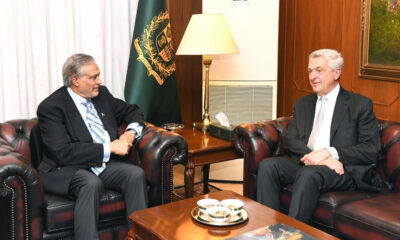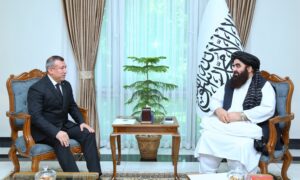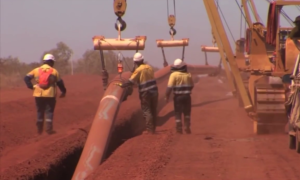Latest News
Biden Afghanistan report mostly blames Trump for chaotic US withdrawal
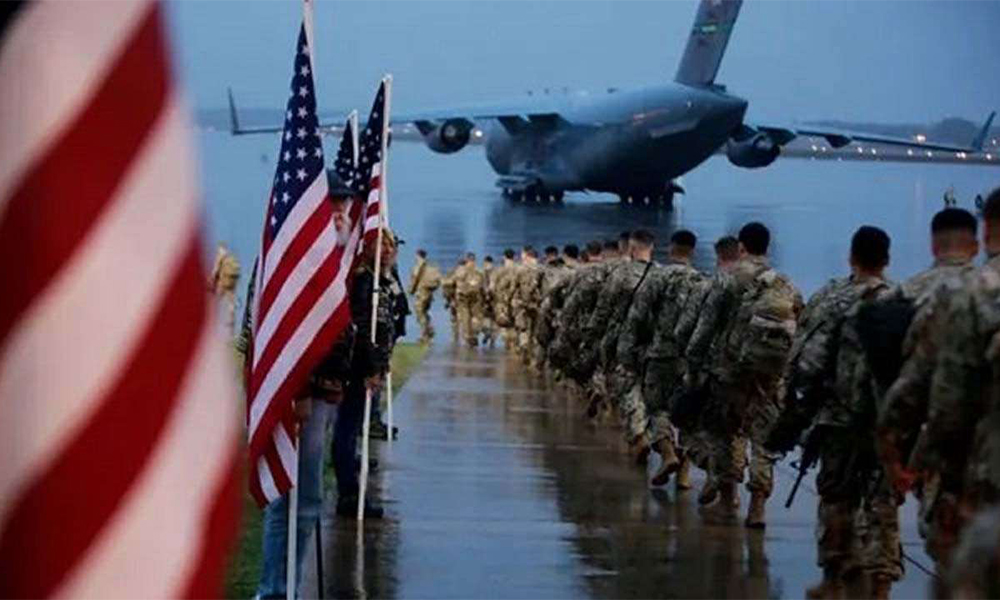
President Joe Biden’s administration on Thursday released a summary of classified reports that mostly blamed the chaotic August 2021 US pullout from Afghanistan on his predecessor, Donald Trump, for failing to plan for the withdrawal he had agreed on with the Islamic Emirate of Afghanistan (IEA).
The Democratic administration’s summary, drawn from top-secret State Department and Pentagon reviews sent to Congress, ignited angry reactions from Republican lawmakers who have demanded the documents for their own investigation of the pullout, Reuters reported.
Michael McCaul, the Republican chairman of the US House of Representatives Foreign Relations Committee, strongly criticized the administration. Biden ordered the pullout and was “responsible for the massive failures in planning and execution,” McCaul said in a statement.
McCaul, who is overseeing the Republican probe, charged that his multiple threats to subpoena the State Department and Pentagon reviews, which were completed last year, finally compelled the administration to send them to Congress.
“President Biden’s choices for how to execute a withdrawal from Afghanistan were severely constrained by conditions created by his predecessor,” said the summary of the reviews. “The outgoing administration provided no plans for how to conduct the final withdrawal or to evacuate Americans or Afghan allies.”
The document acknowledged that the administration learned lessons from the withdrawal, and now errs on the side of “aggressive communication” about risks in a destabilized security environment, read the report.
The withdrawal that ended America’s longest war saw tens of thousands of Afghans desperate to flee a return of Islamic Emirate of Afghanistan (IEA) rule besiege Kabul’s international airport, some handing babies to US troops or breaking in and hanging onto departing aircraft, Reuters reported.
The Trump administration also “gutted” refugee support services and virtually halted the processing of Special Immigration Visas for thousands of Afghans seeking evacuation because they worked for the US government, leaving a massive backlog, the summary said.
“Transitions matter. That’s the first lesson learned here. And the incoming administration wasn’t afforded much of one,” National Security Council spokesman John Kirby told a White House briefing.
The 12-page summary placed some responsibility for the chaos of the pullout and evacuation operation on flawed US intelligence and military assessments that failed to foresee the speed of the IEA takeover and predicted that Afghan security forces would hold Kabul, read the report.
“As late as May 2021, the assessment was still that Kabul would probably not come under serious pressure until late 2021 after US troops departed,” the summary said.
Pressed on whether Biden bore any responsibility for the Kabul airport disorder, Kirby replied, “Just by dint as the commander in chief, he assumed responsibility for the orders he gives.”
The 20-year war in Afghanistan, the longest conflict involving US troops, was started under President George W. Bush and furthered under President Barack Obama. Over 100,000 people were killed and about 3 million displaced, according to data from the nonpartisan Costs of War project at Brown University.
Biden pledged during his 2020 campaign to end “forever wars” and withdraw from Afghanistan, although he postponed the pullout to which Trump had agreed by three months until the end of August 2021. The US-backed Kabul government collapsed on Aug. 15 as the IEA were entering the city.
The disorganization and chaos as the US left raised questions about Biden’s leadership, the quality of US intelligence and America’s commitment to human rights and thousands of Afghan citizens it had relied on, read the report.
A Daesh suicide bomber on Aug. 26, 2021, killed 13 US service members and 170 Afghans as they clustered outside a gate of the airport.
Thousands of American citizens, greencard holders, and Afghans who had applied for Special Immigration Visas were unable to leave on the largest US airlift on record.
Altogether, some 100,000 Americans, greencard holders and Afghans – many of whom were not vetted – were flown out before the US withdrawal ended just shy of the 20th anniversary of the US-led invasion of Afghanistan, Reuters reported.
The Trump administration agreed in a February 2020 accord with the Islamic Emirate of Afghanistan (IEA), on the pullout of all US-led international forces by May 2021. The IEA agreed to stop attacking American troops and hold peace talks with the Western-backed Kabul government.
In laying out the withdrawal chronology, the summary said that successive troop reductions ordered by Trump had left 2,500 US troops in Afghanistan when Biden took office in January 2021. The result was that the IEA controlled or contested half the country, the summary said.
Faced with the choice of delaying the pullout or increasing the number of US forces and facing renewed IEA attacks, Biden chose the former and ordered planning for the withdrawal and evacuation operation, the summary said.
Latest News
US Congress to hold meeting to review situation of Afghan women

The U.S. Congressional Human Rights Commission said in a statement it will hold a meeting on Tuesday this week to review the situation of Afghan women.
This meeting will be held on Tuesday next week with the presence of Rina Amiri, the US special representative for Afghan women’s affairs, Heather Barr, director of the Women’s Rights Division at Human Rights Watch and a number of other Afghan women.
Based on the statement of the commission, the participants of this meeting will review the human rights issues including the situation of women and girls in Afghanistan and provide recommendations for the action of the US Congress.
“Since August 2021, the situation of Afghan women and girls has significantly worsened. A growing list of severe restrictions imposed by the Taliban has severely reduced women’s ability to participate in public life,” the statement read.
This commission also pointed to the prohibition of women from work and denial of access to education, adding that the control over women’s private lives has increased.
Meanwhile, the Islamic Emirate has always rejected concerns about the violation of women’s rights in Afghanistan and emphasized that it is committed to respecting women’s rights in accordance with Islamic Sharia.
Latest News
Pakistan and Turkmenistan agree to fast-track gas pipeline project involving Afghanistan and India
The Turkmenistan-Afghanistan-Pakistan-India (TAPI) pipeline will originate from Galkynysh, the world’s second-biggest gas field, and end at the Indian city of Fazilka near the Pakistan border.
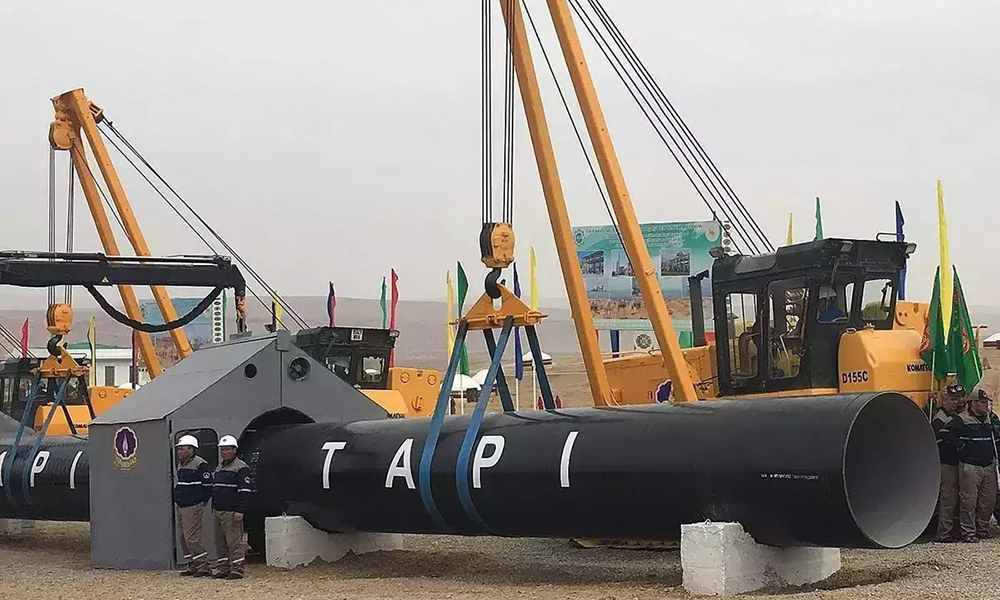
Pakistan and Turkmenistan agreed on Wednesday to fast-track a major pipeline project that will allow the Central Asian state to supply natural gas to Pakistan and India via Afghanistan, thereby enhancing economic activity across the region and benefiting all involved countries.
The understanding between the two states was reached during a meeting between Federal Minister for Petroleum Dr. Musadik Malik and Turkmenistan’s Foreign Affairs Rasit Meredow who arrived on a two-day visit to Islamabad on Tuesday.
The Turkmenistan-Afghanistan-Pakistan-India (TAPI) pipeline will originate from Galkynysh, the world’s second-biggest gas field, and end at the Indian city of Fazilka near the Pakistan border.
If the project is implemented, it will help Turkmenistan supply about 33 billion cubic meters (bcm) of natural gas each year along a route covering a distance of over 1,800 kilometers.
According to an official statement released by the Ministry of Energy’s Petroleum Division, Pakistan and Turkmenistan are working to “expedite” the pipeline project.
“TAPI pipeline project will lower energy costs, which can boost industrial growth, create jobs and foster economic development,” it quoted Pakistan’s petroleum minister as saying during the meeting. “Reliable and affordable energy supplies are vital for industrial sectors and overall economic stability.”
“This project, aimed at fostering economic integration and energy security, has witnessed substantial progress through collaborative efforts,” he continued, stressing the importance of continued engagement between the two countries.
Malik added Pakistan was fully committed to the project which was vital for regional energy cooperation and infrastructure development.
The visiting dignitary expressed appreciation for the warm welcome extended to his delegation by the Pakistani authorities.
“Together we will chalk out a roadmap for cooperation between both countries,” he added.
The meeting was also attended by the CEO of TAPI Pipeline Company Limited.
Other participants of the meeting emphasized the project’s strategic importance in enhancing regional connectivity, promoting economic growth and meeting the energy demands of participating nations.
The TAPI project was envisaged in the early 1990s and officially agreed upon in December 2010.
It has primarily been delayed due to security concerns, geopolitical tensions, funding challenges and bureaucratic hurdles.
Related Stories:
Acting FM discusses TAPI project with Turkmenistan’s envoy in Kabul
Latest News
Pakistan, UNHCR agree on lasting solutions for afghan refugees
The recent attacks and violent demonstrations by Afghani diaspora against Pakistan’s Diplomatic Missions in Frankfurt, London and Brussels also came under discussion, Radio Pakistan reported.
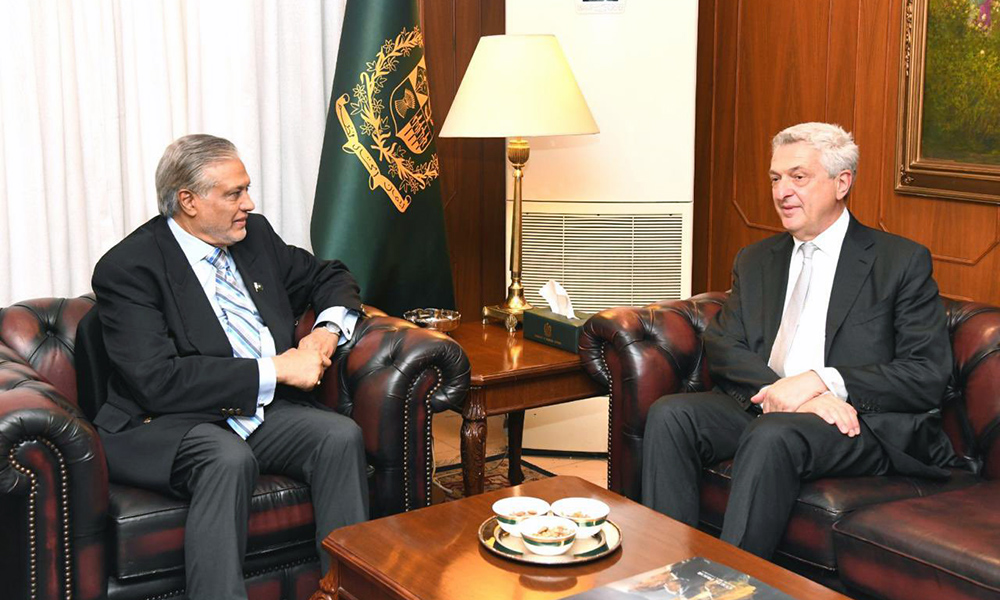
Pakistan’s Deputy Prime Minister and Foreign Minister Mohammad Ishaq Dar on Friday held a telephonic conversation with the United Nations High Commissioner for Refugees Filippo Grandi.
They discussed matters related to Pakistan-UNHCR cooperation.
The recent attacks and violent demonstrations by Afghani diaspora against Pakistan’s Diplomatic Missions in Frankfurt, London and Brussels also came under discussion, Radio Pakistan reported.
The High Commissioner appreciated Pakistan’s traditional hospitality towards Afghan refugees, in particular the recent decision by the Government of Pakistan to extend the validity of Proof of Registration Card.
Deputy Prime Minister and Foreign Minister and the High Commissioner agreed to continue to work together to advance Pakistan-UNHCR cooperation and find lasting solution to the issue of Afghan refugees, read the report.
This comes after the Ministry of Refugees and Repatriation of Afghanistan has announced that Pakistan has extended the POR (Proof of Registration) cards for Afghan refugees for another year.
On Thursday, July 25th, the Ministry reported on X that the Afghan Commissioner for Refugees in Islamabad confirmed the extension of POR cards for Afghan refugees residing in Pakistan. The new validity of these cards is from June 1, 2024, to June 30, 2025.
This extension comes amid rising tensions as the Pakistani government has been deporting over two thousand individuals daily. Despite the extension, Afghan refugees holding POR cards are increasingly concerned about the possibility of forced deportation to Afghanistan.
Related Stories:
Longer-term solutions needed for issue of Afghan refugees in Pakistan: UNHCR chief

UNHCR chief discusses Afghan refugee issue with Pakistan’s deputy PM
-

 Sport4 days ago
Sport4 days agoOlympics finally here; What you need to know
-

 Latest News5 days ago
Latest News5 days agoOCHA reports 110 die in landmine explosions in Afghanistan every month
-

 Regional5 days ago
Regional5 days agoChina braces for twin tropical cyclones after deadly flash floods
-

 Health4 days ago
Health4 days agoHealth partners provide services 589,205 people in Afghanistan in last month
-

 Latest News4 days ago
Latest News4 days agoAfghanistan’s Hajj ministry confirms death of 27 pilgrims in Mecca and Medina
-

 Business5 days ago
Business5 days agoConference on Islamic microfinance kicks off in Kabul
-

 Sport4 days ago
Sport4 days agoACB proposes ODI fixtures against top-tiered teams
-
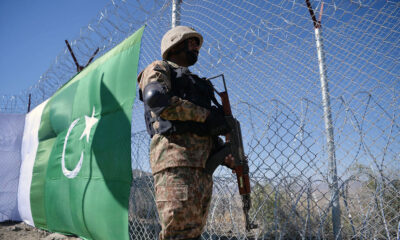
 Latest News4 days ago
Latest News4 days agoIslamabad claims three terrorists killed at Pakistan-Afghanistan border












